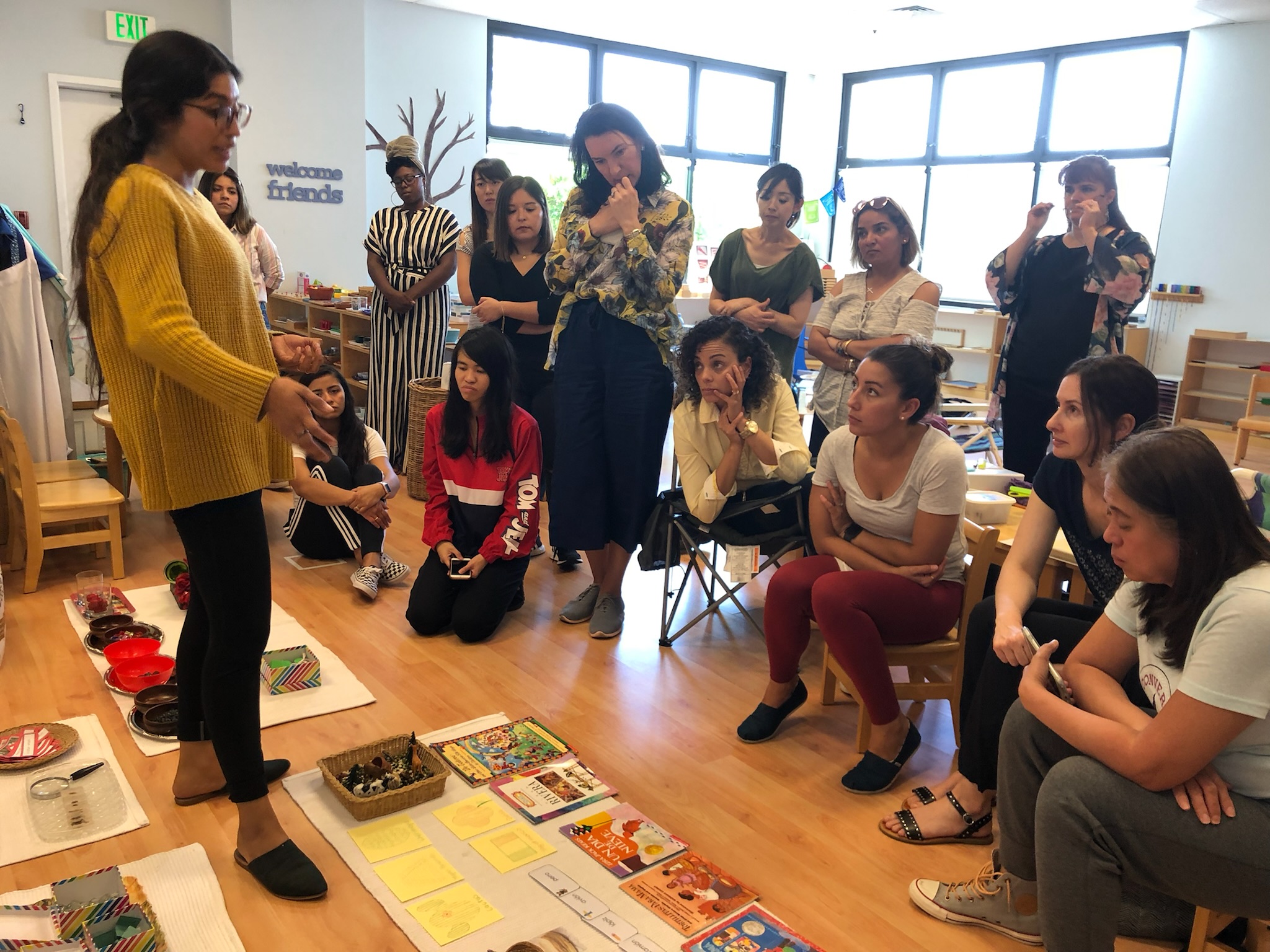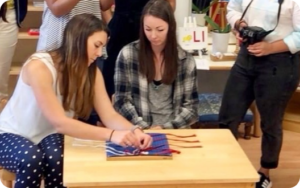Having worked in the education sector for years, I’ve witnessed firsthand the transformative power of the Montessori method. Developed by Dr. Maria Montessori, this child-centered approach to education fosters independence, creativity, and a lifelong love of learning. Montessori education is not just about imparting knowledge; it’s about nurturing the whole child—academically, socially, and emotionally. The significance of this method lies in its ability to adapt to each child’s unique interests and learning style, encouraging them to reach their full potential.
Importance of Montessori Teacher Certification
The heart of any effective Montessori classroom is a well-trained teacher who embodies the principles of the Montessori philosophy. Achieving Montessori teacher certification is more than just obtaining a credential; it’s a personal and professional growth journey. This certification ensures educators have the necessary skills and knowledge to create an environment where children can thrive. Certified Montessori teachers are adept at guiding students through self-directed learning, using specially designed materials to facilitate hands-on discovery. This certification is a testament to the teacher’s commitment to fostering a nurturing and stimulating learning environment.
Montessori Teacher Academy and Its Role in Montessori Teacher Training
At Montessorita’s Montessori Teacher Academy, we dedicate ourselves to preparing the next generation of Montessori educators. Our academy is built on a foundation of excellence, providing comprehensive training that covers both theoretical and practical aspects of Montessori education. We understand the profound impact a well-prepared teacher can have on their students, and we strive to equip our trainees with the tools they need to succeed. We design our program to be thorough and supportive, ensuring every graduate is ready to make a meaningful difference in the lives of their students. At Montessorita, we don’t just teach Montessori; we live it and invite you to join us on this rewarding journey.
Understanding Montessori Teacher Certification
Purpose of Montessori Teacher Certification
Montessori teacher certification formally recognizes an educator’s expertise and commitment to the Montessori method. This certification ensures teachers possess the necessary knowledge, skills, and understanding to create a nurturing and stimulating Montessori learning environment. At Montessorita’s Montessori Teacher Academy, we focus on providing comprehensive training that prepares educators to meet the unique needs of their students.
Overview of Certification Levels
All of the following types of credentials require the same coursework and investment, the only difference is the title of the credential based on existing levels of education.
AMS Early Childhood Credential
Our AMS Early Childhood Credential program equips educators with the skills to teach children aged 2½ to 6 years. This foundational credential covers essential aspects of Montessori philosophy, child development, and practical application of Montessori materials. Graduates are fully prepared to lead early childhood classrooms and foster independent learning in young children. A bachelor’s degree in any subject area is required for this credential.
AMS Early Childhood Associate Credential
The AMS Early Childhood Associate Credential is designed for educators who may not have a bachelor’s degree but still wish to pursue Montessori certification. This program offers the same rigorous training and practical experience as the complete credential program, ensuring graduates can provide high-quality Montessori education. The best part is that if a bachelor’s degree is earned by the adult learner in the future, this credential can be easily upgraded to the standard credential above.
AMS International Early Childhood Credential
Our AMS International Early Childhood Credential is tailored for educators with a bachelor’s degree from an international institution. This program recognizes the global reach of Montessori education and prepares teachers to implement Montessori principles effectively, regardless of their geographical location. Graduates are equipped to bring the Montessori method to diverse educational settings worldwide.
Admission Requirements
General Eligibility Criteria
To enroll in Montessorita, prospective students must meet the following general eligibility criteria:
- Age: Applicants must be at least 18 years old.
- Education: Applicants must have a high school diploma or equivalent for all programs.
- Experience: While previous experience with young children is preferred, it is not mandatory.
Specific Requirements for Certification Programs
AMS Early Childhood Credential
- Educational Requirement: A bachelor’s degree from an accredited four-year college or university, verified by official transcripts.
- Application Components:
- Completed application form
- Three letters of recommendation (two professional, one personal)
- A 350-word essay detailing how and when the applicant learned about Montessori, demonstrating basic knowledge of the Montessori Method, explaining the desire to enroll in the program, and outlining future goals
- Copies of any other relevant credentials (if applicable)
- $250 non-refundable registration fee
AMS International Early Childhood Credential
- Educational Requirement: A bachelor’s degree from an international institution, verified by official transcripts.
- Application Components:
- Completed application form
- Three letters of recommendation (two professional, one personal)
- A 350-word essay detailing how and when the applicant learned about Montessori, demonstrating basic knowledge of the Montessori Method, explaining the desire to enroll in the program, and outlining future goals
- Copies of any other relevant credentials (if applicable)
- $250 non-refundable registration fee
Additional Admission Criteria and Application Components
In addition to the specific requirements for each certification program, applicants must also:
- Personal Interview: Participate in a personal interview with the program director to discuss their interest in Montessori education and ensure a mutual fit.
- Application Review: Ensure all application materials are complete and submitted before the deadline.
Steps to Obtain Montessori Teacher Certification
Step-by-Step Guide Through the Application Process
- Meeting with us: Set up a meeting with us via Calendly on the website to discuss the program requirements or sign up for an information session.
- Completing the Application Form: Start by completing the application form on our website. Fill all sections accurately to avoid any delays in processing.
- Submitting Letters of Recommendation: Gather three letters of recommendation—two professional and one personal. These letters should attest to your capabilities and readiness to embark on Montessori teacher training.
- Writing the Personal Statement Essay: Write a 350-word essay detailing how and when you learned about Montessori, your understanding of the Montessori Method, your reasons for enrolling in the program, and your future goals. This essay is crucial to your application and should reflect your passion and commitment.
- Providing Academic Transcripts and Other Credentials: Submit official academic transcripts and relevant credentials. Ensure these documents are sent directly from the issuing institutions to maintain authenticity.
- Paying the Registration Fee: Pay the non-refundable registration fee of $250. This fee covers the initial processing of your application.
- Personal Interview with the Program Director: Attend a personal interview with the Program Director. This interview provides an opportunity to discuss your educational background, experience with young children, and motivation for pursuing Montessori teacher training. The interview also allows you to ask any questions about the program.
Curriculum and Course Structure
At Montessorita, our Teacher Education Program provides a comprehensive and in-depth curriculum designed to prepare educators for the unique demands of a Montessori classroom. Our program integrates academic and practical components to ensure well-rounded and effective teacher training.
Academic Components and Course Subjects
Our curriculum covers a broad range of subjects essential for Montessori educators:
Montessori Philosophy and Theory
We delve into the life and contributions of Dr. Maria Montessori, exploring her revolutionary approach to education. Students learn the foundational principles that underpin the Montessori method and how to apply them in a classroom setting.
Child Development and Early Childhood Education
Understanding child development is crucial for effective teaching. We cover developmental theories and stages, emphasizing the importance of nurturing a child’s growth through tailored educational practices.
Classroom Leadership and Management
We equip future teachers with the skills to create and maintain an optimal learning environment. This includes strategies for classroom management, effective communication with children and parents, and fostering a supportive and inclusive atmosphere.
Practical Life, Sensorial, Math, and Language
These core areas are central to the Montessori curriculum. Students gain hands-on experience with Montessori materials and learn how to present them effectively to encourage independent learning and critical thinking.
Cultural Subjects
Our program also includes a wide range of cultural subjects to ensure holistic education for children:
- Physical Science
- History
- Botany
- Zoology
- Geography
- Art
- Music
- Movement
- Peace Education
- Anti-Bias and Anti-Racist Education (ABAR)
These subjects help children understand and appreciate the world, fostering curiosity and a love for learning.
At Montessorita, we emphasize the integration of these subjects into everyday classroom activities, ensuring that our graduates are well-prepared to create rich and engaging learning experiences for their students.
Practicum Component
The practicum component is not just a part but a transformative phase of Montessorita’s Teacher Education Program. It provides students the invaluable opportunity to apply their theoretical knowledge in a real Montessori classroom. Experienced Montessori educators guide and supervise this hands-on experience to shape and refine your teaching skills, preparing you for a successful career in Montessori education.
Practicum Requirements and Expectations
During the practicum, students are expected to work a minimum of 540 hours in a Montessori school. This immersive experience helps students develop essential teaching skills and gain confidence in their ability to manage a classroom. The practicum involves:
- Daily Interaction with Children: Students engage with children, present Montessori materials, and facilitate learning activities.
- Implementation of Montessori Methods: Students apply Montessori principles and methods, tailoring their approach to meet the individual needs of each child.
- Classroom Management: Students practice creating a prepared environment, maintaining order, and fostering a positive and respectful classroom culture.
Role of Supervising Teachers and Field Supervisors
Supervising teachers and field supervisors play a vital role in the practicum component. They provide mentorship, support, and constructive feedback to help students refine their teaching practices. Their responsibilities include:
- Observation and Feedback: Supervising teachers observe students as they interact with children and use Montessori materials, providing immediate feedback to improve techniques and approaches.
- Guidance and Support: Field supervisors offer guidance on best practices, classroom management strategies, and professional development, ensuring that students are well-prepared for their teaching careers.
- Evaluation: Supervising teachers and field supervisors evaluate student performance, ensuring that they meet the standards required for Montessori certification.
Completing the Yearlong Project and Self-Assessment Reports
In addition to your daily practicum activities, the Yearlong Project and monthly self-assessment reports are crucial components of your learning journey. They are not just tasks but opportunities for you to reflect on your learning experiences, demonstrate your growth, and deepen your understanding of Montessori education. They are your tools for continuous improvement and self-discovery.
- Yearlong Project: Students undertake a comprehensive project that involves creating a detailed curriculum plan, developing classroom materials, and demonstrating their ability to implement Montessori methods effectively. This project showcases their creativity, planning skills, and commitment to Montessori education.
- Self-Assessment Reports: Students submit monthly reports reflecting on their progress, challenges, and achievements during the practicum. These reports encourage self-reflection and continuous improvement, helping students identify areas for further development.
We believe that the practicum component is essential for producing competent and confident Montessori educators. Through hands-on experience and continuous feedback, our students are well-equipped to make a meaningful impact in their future classrooms.
Credits and Certification
Montessorita offers ECE credits through our Montessori Teacher Education Program. These credits fulfill the requirements specified in Title XXII of the California Code of Regulations and the California Department of Social Services (CDSS) recognizes them.
Upon completing the program, you will receive certification that validates your training and readiness to teach in a Montessori environment. Our program holds accreditation from the Montessori Accreditation Council for Teacher Education (MACTE) and is affiliated with the American Montessori Society (AMS). These accreditations ensure that our training meets the highest standards of Montessori education, providing you with credentials that are respected and recognized worldwide.
Benefits of Choosing Montessorita
Choosing Montessorita for your Montessori teacher certification has numerous benefits that set our program apart. We maintain high academic standards and provide comprehensive training that covers all essential aspects of Montessori education.
Our curriculum is robust and meticulously designed to ensure you gain both theoretical knowledge and practical skills. This rigorous approach prepares you thoroughly for the challenges and rewards of a Montessori teaching career.
Our faculty consists of experienced and dedicated educators who bring a wealth of knowledge and passion to their teaching. They are committed to your success and provide personalized guidance and support throughout your training. Their expertise will give you valuable insights and practical strategies to enhance your teaching effectiveness.
At Montessorita, hands-on learning and practical experience are integral to our program. You will engage in immersive, real-world practice under the supervision of seasoned Montessori educators. This practical training is essential for developing your skills and confidence in creating and managing a Montessori classroom.
At Montessorita, we pride ourselves on fostering a supportive learning environment and a vibrant community. Here, collaboration and mutual respect are not just words, but the foundation of our program. We encourage you to connect with peers, share experiences, and build a network of professional relationships that will not only support your growth and development as a Montessori educator but also make you feel welcomed and valued.
Many Montessorita graduates have gone on to achieve great success in their careers, and their testimonials and success stories are a testament to the transformative impact of our training program. By choosing us, you are not just joining a program but a legacy of educators who are making a meaningful difference in the lives of children worldwide. This should give you the confidence and reassurance that our program is effective and will help you succeed in your career.
As a prospective Montessori teacher, you are on the brink of a rewarding and impactful career. We encourage you to take the next step toward becoming a credentialed Montessori educator. By enrolling in Montessorita’s Teacher Education Program, you will embark on a journey of personal and professional growth, equipped with the knowledge and skills to make a lasting difference in the lives of children.
To enroll in our program, please visit our website at www.montessorita.com where you can find detailed information about our course offerings, admission requirements, and the application process. We are here to support you every step of the way, and our dedicated team is available to answer any questions you may have.
For further inquiries and personalized assistance, feel free to contact us:
- Phone: 949-242-0250
- Email: info@montessorita.com



